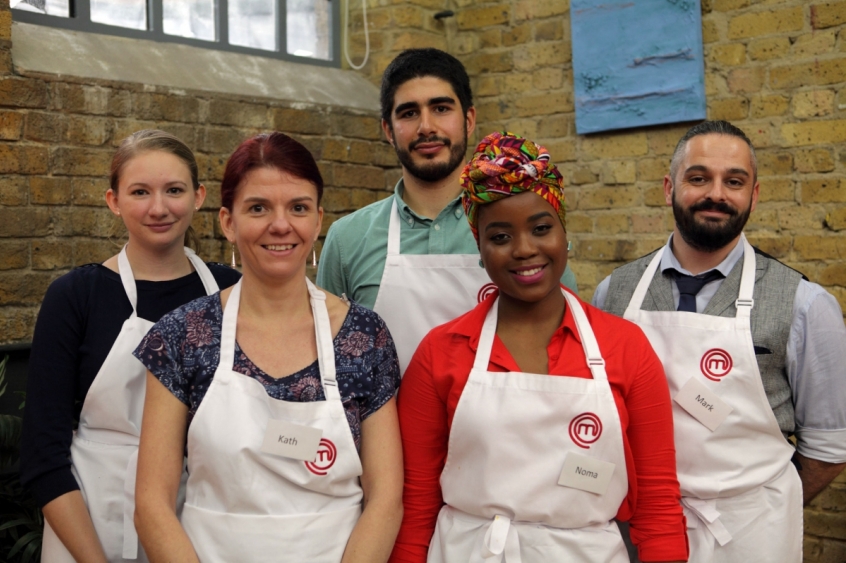
Perfectionism gets a pretty good press today. "I'm a perfectionist, you see", confides the latest contestant on Masterchef. Or was it The X Factor? Or Strictly?
It's hard to remember, because perfectionism is the latest must-have aspect of any go-getter's personality. Without perfectionism you're nothing. Once whispered as a slightly guilty secret, perfectionism has become a badge of honour. In fact, so common is laying claim to perfectionism, it now regularly features at the top of lists of 'what not to put on your CV'.
And we all know why: perfectionism is the weakness we all know we're supposed to have: that great character flaw that drives us to great achievements, keeps us working after many have given up, and sets us a step above normal mortals.
But is this the right way to understand perfectionism? And do we even know what we are aspiring to?
Psychologists have recognised for a long time that perfectionism has a dark side. In fact those who score highly on measures of perfectionism are more likely to struggle emotionally. They are more prone to conditions such as post natal depression, at greater risk of suicide attempts, and more likely to suffer burnout and emotional breakdowns. In fact, where you score on a measure of perfectionism predicts how well you will cope in times of stress. When the pressure rises it is the perfectionists who start to crumble first.
There are two really interesting things about perfectionism. The first is about where it comes from. Personality theory would suggest that at least some of our personalities are influenced by genetic components. Want to know where your own irrational need to have all your CDs lined up in alphabetical order comes from? Take a look at your parents' shelves. It is clear we inherit some of our personality tendencies from our parents.
But it isn't just about biology – in fact some studies suggest a surprisingly small influence from genetics. It is hard to separate the influence of your parents' biological input from the things you learned growing up with them. And it's not just about how they parent you. We know that children who grow up under parental pressure to be perfect become increasingly perfectionist themselves as they get older, but so do the children of parents who are very self-critical. Even when directed towards ourselves, perfectionism, it seems, can rub off on those we care about the most.
But putting aside questions of nature versus nurture, what is it that determines whether perfectionism manifests as a drive to achieve more and climb higher, or a nagging, undermining, gnawing fear that means you cannot let yourself stop?
Psychologists contrast adaptive perfectionism with maladaptive or clinical perfectionism, and there's quite a body of research looking into the difference between the two. In general, it seems that perfectionism becomes more problematic the more it is associated with one of two things: anxiety or issues around self esteem.
Someone who feels generally confident about who they are, accepting of themselves and happy with their place in the world, who aims high and pushes themselves in order to reach their true potential, is very different from someone who is unsure about who they are, anxious that other people may not like or approve of them or is someone who worries about who they are and how acceptable they might be. The latter strives for perfection because it is the only thing that can earn them the elusive value they feel they don't otherwise have.
Similarly, there's a big difference between an individual who is always keen to give things a go and push their own limits but is able to accept not making those goals sometimes, and someone struggling with anxiety and a fear of failure – the kind of person who has a desperate need to achieve the perfection they aim for not for the satisfaction of the achievement but because of the terror of what it will mean if they don't.
So is there a third factor about perfectionism that we need to consider? I'd like to suggest that aside from the personality drive which some of us may have inherited, we are now living in a culture which prescribes perfection as the ideal for everyone. Our gradual fascination with perfectionism has evolved a culture that proposes it as the ideal, and as a result we all carry the pressure of perfectionism to some degree.
Think about it: a decade ago if you invited friends over for dinner you might have made a casserole, or had a fairly decent stab at an indulgent pudding. Now, preparing dinner for friends involves some kind of Masterchef-worthy display. Making cakes for school bake sales used to be about producing a plate of just about acceptable fairy cakes. Now the tables groan under beautifully crafted, piped and sculpted cup cakes, complete with sparkles, themes and colour coding, and you don't want to be the one whose cakes are still there at the end of the sale, forlorn on an otherwise empty table.
And does anyone remember the days where if you wanted to get fit the most you were likely to aim for was to be able to complete a shuffle around a local jogging route without having to stop to check you were still alive? Now any admission you "like to run" is met with questions about "What's your best time?" and when you're going to do your first marathon.

I'm all for fitness and healthy activity. But I want to be able to enjoy cycling without feeling bad if I have to get off and push up that particularly big hill, or enjoy walking without having to check my obligatory Fitbit to see if I walked more steps than yesterday. And I don't need to point out to anybody the push for perfection in how we dress, present ourselves and appear to other people: even our teeth are now supposed to be perfect.
This constant pressure to look and be perfect takes its toll. Studies looking at the impact of these often impossible standards show that those most affected are teenagers and young people. At this age the adolescent brain is particularly influenced by any messages offering feedback on appearance and style. Teenagers face a world and life which is still up for grabs and are much more likely to feel they should be able to achieve all these lofty goals: to look perfect, have the perfect friendships and relationships, super-perform in sport, academic studies, and extracurricular hobbies. This relentless drive for perfection places all of our teens under pressure and leaves most feeling they have not quite made the grade. The more vulnerable can all too easily crack under the pressure and this can contribute to emotional and mental ill health in teens and young people.
Meanwhile for the rest of us, perfectionism contributes significantly to high levels of stress and pressure. Time and time again I notice how, in those who have suffered burnout or breakdown as a result of stress, it is not the big things that have broken them. Instead it is the small things which push us over the edge, the feeling like we always have to look amazing, the trying to fit in additional pressures around the everyday ones life presents us with. The failure to find any clear slots in your days or weeks where you can actually relax for once and be your slightly imperfect self. And for some this becomes an exhausting pattern of striving and working which can spread to every area of life. The pressure to be perfect can steal things from us as all too easily leisure activities become just something else we have to achieve in.
So what's the antidote to our high pressure world? We need to find spaces in our life where we can be not about achieving – not measuring, not grading, not looking to better what we did last week. Take up a sport you are useless at just for the sheer fun of it: bake some slightly ropey cakes that actually taste pretty good, invite friends over just for pizza, or toast, or whatever doesn't require a massive feat of culinary brilliance. Enjoy their company, not the relief of knowing you haven't messed up!
Do whatever it takes to free yourself for a moment from the relentless need to achieve. Watch out for the subtle impact perfectionism can have, stopping you from trying new things, haunting you with the fear of failure or stealing the joy of simple pleasures by turning them into tasks.
Alongside perfection (there's nothing wrong with pushing the limits in some of the things we do) let's celebrate the things which can so easily get forgotten, those basic building blocks of life: normality, happiness and pleasure. Strive instead for balance – aiming high sometimes, but doing so from a foundation of a comfortable relaxed life where we accept who we are..
Feeling under pressure to prove you are more than just ordinary? Maybe it is time to rebel.
Some colleagues of mine have written a great book about how to break free from perfectionism: check out The perfectionism book.
Dr Kate Middleton is a psychologist and church leader. Follow her on Twitter @communik8ion

















